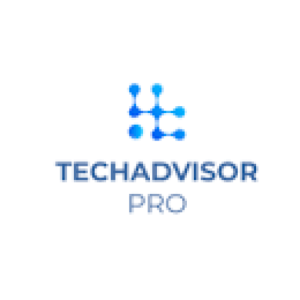In today’s data-driven world, businesses are inundated with vast amounts of information. For B2B organizations, managing and leveraging this data effectively is critical to staying competitive. The solution? A Data Management Platform (DMP). But with so many options available, how do you choose the right one for your organization?
This blog post will guide you through the key factors to consider when selecting a Data Management Platform for your B2B organization, helping you make an informed decision that can boost operational efficiency and business growth.
What is a Data Management Platform (DMP)?
A Data Management Platform (DMP) is a centralized system used by organizations to collect, store, and manage data from various sources. It helps businesses create actionable insights by analyzing and segmenting customer data, leading to improved decision-making and more targeted marketing efforts. DMPs can handle a variety of data types, including first-party (customer data), second-party (partner data), and third-party (purchased data) sources.
By integrating data from multiple touchpoints, a DMP enables businesses to create a unified view of their customers, which is crucial for delivering personalized marketing and services.
Why Your B2B Organization Needs a Data Management Platform
A Data Management Platform offers several benefits for B2B organizations, including:
- Centralized Data Storage: Consolidates data from multiple channels into a single repository for easy access and management.
- Enhanced Data Insights: By organizing and segmenting data, a DMP provides deeper insights into customer behavior and preferences, improving targeting efforts.
- Improved Data Security: With robust security features, a DMP ensures that sensitive customer and business data is protected.
- Better Marketing Campaigns: A DMP allows businesses to deliver personalized and relevant marketing messages to their target audience, improving conversion rates and ROI.
Key Factors to Consider When Choosing a Data Management Platform
When selecting a Data Management Platform for your B2B organization, it is essential to evaluate the following factors to ensure you are making the right choice:
1. Data Integration Capabilities
One of the primary functions of a DMP is to integrate data from multiple sources such as CRM systems, marketing platforms, social media, and web analytics. Ensure that the DMP you choose can seamlessly integrate with your existing systems and workflows.
Look for a platform that supports:
- Third-party data integration: Integrating external data sources can enhance your insights and customer segmentation.
- Real-time data processing: Fast data integration will allow your team to act quickly on fresh data, keeping your marketing strategies up-to-date.
2. Scalability
As your organization grows, so will your data needs. It’s important to select a DMP that can scale with your business. This includes:
- Handling large data volumes: Ensure that the platform can accommodate the increasing volume of data your organization collects.
- Flexibility in adding new features: Choose a platform that allows for customization and addition of new features as your business needs evolve.
3. Data Security and Compliance
Data privacy is more critical than ever, especially for B2B organizations that deal with sensitive customer and business data. Ensure that the DMP you choose complies with relevant data protection regulations such as GDPR, CCPA, or HIPAA.
Look for:
- Encryption: The platform should offer encryption for data at rest and in transit to protect against unauthorized access.
- Access controls: Make sure that the platform allows for detailed user permissions to ensure only authorized personnel can access sensitive data.
4. User-Friendly Interface
A DMP should be easy to use, even for those without extensive technical expertise. A user-friendly interface can streamline data management tasks, saving your team time and reducing errors. Consider platforms with intuitive dashboards, drag-and-drop features, and easy-to-navigate menus.
5. Customer Support and Training
Choosing a DMP that offers reliable customer support is essential, especially if issues arise with your data management. Look for platforms that offer:
- 24/7 support: Ensure that you can get help whenever needed.
- Comprehensive training resources: Choose a platform that provides onboarding sessions, tutorials, and user guides to ensure your team can quickly become proficient in using the platform.
Top Platforms for B2B Organizations
Here are some of the most popular Data Management Platforms to consider for your B2B organization:
- Salesforce Data Management: Known for its robust CRM system, Salesforce also offers powerful data management tools that integrate seamlessly with its CRM and marketing automation features.
- Adobe Experience Platform: A versatile DMP that allows businesses to manage customer data, build audience segments, and deliver personalized experiences across various channels.
- Oracle BlueKai: A cloud-based DMP designed for marketers looking to integrate first-party, second-party, and third-party data to optimize marketing campaigns.
- Lotame: A flexible platform that specializes in data collection, audience segmentation, and targeted advertising, making it a great choice for businesses focused on digital marketing.
Conclusion
Choosing the right Data Management Platform for your B2B organization is a crucial decision that can significantly impact your ability to manage data, optimize marketing efforts, and improve overall business performance. By considering factors such as integration capabilities, scalability, data security, user interface, and customer support, you can select a platform that aligns with your organization’s needs and objectives.
As you move forward, ensure that the platform you choose can not only handle your current data requirements but also grow with your business, providing valuable insights and improving decision-making processes over time. Remember, the right Data Management Platform is an investment that will streamline your operations, enhance customer experiences, and drive business growth.
By implementing the right DMP, you’ll be well on your way to leveraging data as a strategic asset for your organization, driving smarter decisions and ensuring long-term success.
I hope you find the above content helpful. For more such informative content, please visit Techadvisor Pro.










